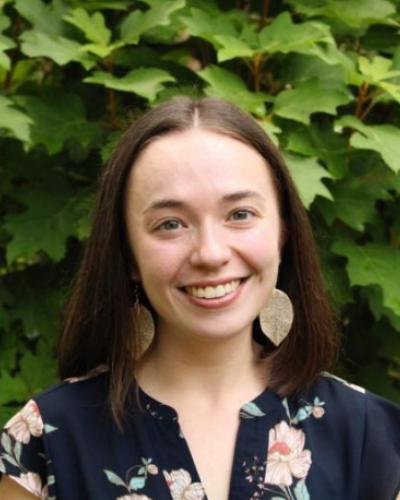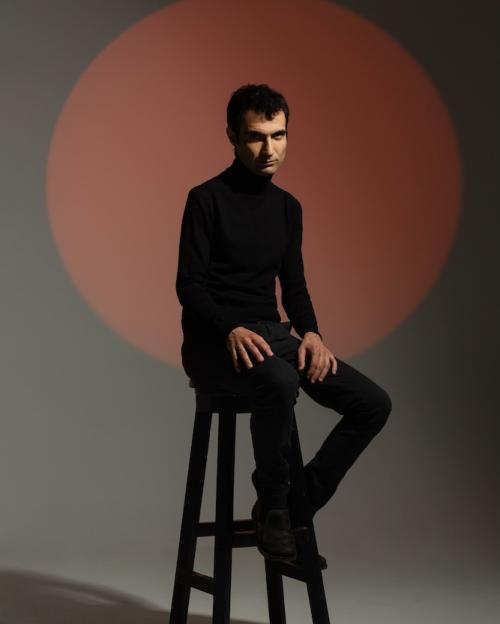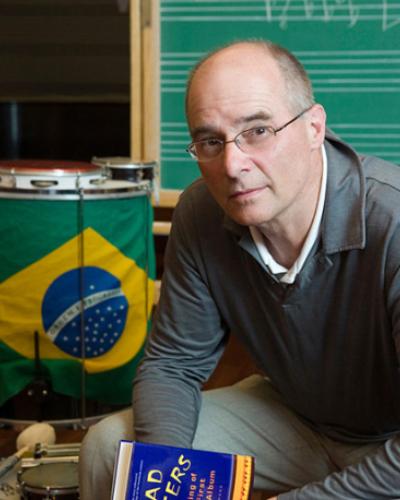Dear Friends of Music,
In my office in Lincoln Hall, in the heart of Cornell’s central campus, I hear a student practicing a Beethoven sonata movement; two hours ago it was a piece by my colleague Roberto Sierra. Visitors to my office might spy framed photographs of Lili Krause and Artur Rubinstein, a Senegambian kora harp, an album by Hank Crawford and Jimmy McGriff, and recordings and books by my Cornell colleagues. I’m mindful of the many artistic and scholarly interactions that find a home in Lincoln, and that transform students’ lives. Faculty and students in Lincoln Hall work on two basic tasks: creating new understanding, and sharing that understanding. In doing this, we change ourselves, each other, and society at large for the better.
Our faculty, already internationally renowned, have gained additional well-earned recognition this year. Alejandro Madrid was awarded the Edward J. Dent medal (Britain’s highest musicology award), and Roger Moseley and Catherine Appert won American musicology’s top awards for books and articles, respectively. Roberto Sierra was given the Tomás de Victoria Award, Spain’s highest compositional accolade, Ariana Kim’s Aizuri Quartet won the University of Michigan’s prestigious M-Prize, David Yearsley, Annette Richards, and Andrew Hicks have received important fellowships, and the list goes on.
As much as we delight in this work and its recognition, we take equal pleasure in working with students, both undergrad and grad. Each year we serve upwards of 1500 students, with about 40 classroom and seminar courses (most course sizes are 15 students or fewer), about 20 ensembles, and a host of students in chamber ensembles and individual lessons. Courses nominally addressing a scholarly topic routinely incorporate music-making, just as performing students discover not just the “how” of their art, but also the “why.” Students encounter music from a variety of times, locales, cultural settings, and genres. Whether music majors, minors, or just students interested in music and the people who make it, they take with them new skills and insights that ripple across the campus.
A few examples: our new Steven Stucky Residency, in honor of our Pulitzer Prize-winning composer, will bring renowned artists to workshop with our composition DMA students and perform their pieces, while also working with performance students on emerging techniques. This is made possible by generous contributions of over 50 individuals. Read more and see how you can support this exceptional program.
Recent course offerings are enough to make you want to go back to college. Here are a few, to give you a taste: Mozart in History/History in Mozart; The Velvet Underground; Latino Music in the US; Opera: Social Power, Social Myth, Social Change; Music in and of East Asia; Music Journalism; and Music on the Brain.
Jazz legend Wynton Marsalis spent a week on campus as AD White Professor-at-Large. He spent the days teaching and meeting students in a variety of settings, in a profoundly generous outpouring of energy and insights, in the classroom and master classes, in Lincoln, across the campus, and in the Ithaca community. The culminating concert featured Marsalis’s Blues Symphony, as well as the master himself on stage with the Cornell Symphony, Wind Symphony, and Jazz Band. (Our ensembles attract student musicians from across the campus; it’s an open secret that students in tech fields, in particular, often choose Cornell over other Ivies so that they can have an immersive experience playing in our ensembles.) Marsalis will be back for another residency soon.
Performance highlights include the monumental Bach work, St. Matthew Passion, under Robert Isaacs’ direction, and a concert celebrating the twentieth anniversary of Ensemble X, Cornell-Ithaca College’s collaborative new music ensemble.
All of these exemplify our research and educational mission of intellectual rigor, sustained curiosity, and engagement in the liberal arts. We’re delighted to share with you our joy and passion for what we do.
As a final note, I’m sorry to announce the passing of our beloved Old Dominion Foundation Professor Emeritus John Hsu, whose remarkable career as orchestra conductor, gambist, cellist, and scholar of historical performance practice spanned fifty years at Cornell. Friends may honor him with a gift to the John Hsu Fund, which benefits the Cornell Symphony.
Sincerely,
Steve Pond





